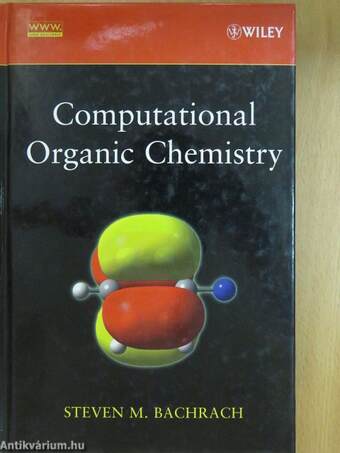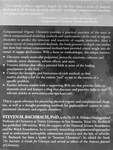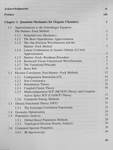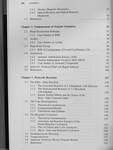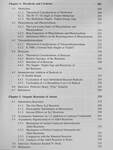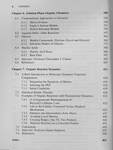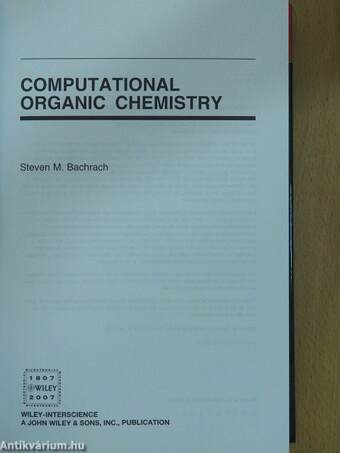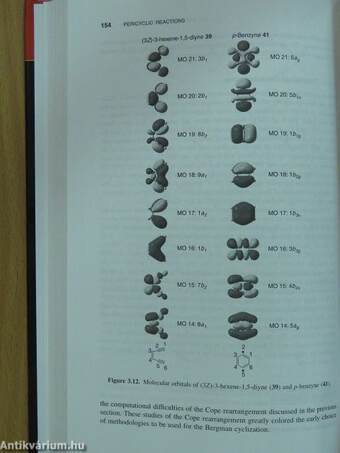1.062.681
kiadvánnyal nyújtjuk Magyarország legnagyobb antikvár könyv-kínálatát

VISSZA
A TETEJÉRE
JAVASLATOKÉszre-
vételek
Computational Organic Chemistry
| Kiadó: | John Wiley & Sons, Inc. |
|---|---|
| Kiadás helye: | New York |
| Kiadás éve: | |
| Kötés típusa: | Fűzött kemény papírkötés |
| Oldalszám: | 478 oldal |
| Sorozatcím: | Wiley-Interscience |
| Kötetszám: | |
| Nyelv: | Angol |
| Méret: | 24 cm x 16 cm |
| ISBN: | 978-0-471-71342-5 |
| Megjegyzés: | Fekete-fehér ábrákkal. |
naponta értesítjük a beérkező friss
kiadványokról
naponta értesítjük a beérkező friss
kiadványokról
Fülszöveg
Computational Organic Chemistry provides a practical overview of the ways in
which computational modeling methods and applications can be used in organic
chemistry to predict the structure and reactivity of organic molecules. After a
concise survey of computational methods, the book presents in-depth case studies
that show how various computational methods have provided critical insight into the
nature of organic mechanisms. With a focus on methodologies, this unique resource:
• Discusses simple molecular properties, pericyclic reactions, carbenes and
radicals, anion chemistry, solvent effects, and more
• Features sidebars that offer a personal look at some of the leading
practitioners in the field
• Conveys the strengths and limitations of each method, so that
readers develop a feel for the correct "tool" to use in the context of a
specific problem
• Further informs readers with a supporting Web site that provides links to
materials cited and features a blog that... Tovább
Fülszöveg
Computational Organic Chemistry provides a practical overview of the ways in
which computational modeling methods and applications can be used in organic
chemistry to predict the structure and reactivity of organic molecules. After a
concise survey of computational methods, the book presents in-depth case studies
that show how various computational methods have provided critical insight into the
nature of organic mechanisms. With a focus on methodologies, this unique resource:
• Discusses simple molecular properties, pericyclic reactions, carbenes and
radicals, anion chemistry, solvent effects, and more
• Features sidebars that offer a personal look at some of the leading
practitioners in the field
• Conveys the strengths and limitations of each method, so that
readers develop a feel for the correct "tool" to use in the context of a
specific problem
• Further informs readers with a supporting Web site that provides links to
materials cited and features a blog that discusses and provides links to new
relevant articles at www.trinity.edu/sbachrac/coc/
This is a great reference for practicing physical organic and computational chem-
ists, as well as a thought-provoking textbook for graduate-level courses in com-
putational chemistry and organic chemistry.
STEVEN M. BACHRACH, PhD, is the Dr. D. R. Semmes Distinguished
Professor of Chemistry at Trinity University in San Antonio, Texas. Dr. Bachrach
has published 100 articles. With the support of the National Science Foundation
and the Welch Foundation, he is currently researching computational approaches
used to understand nucleophilic substitution reactions and the role of solvents.
Dr. Bachrach has been a leader in "Internet Chemistry"; he edited the book
The Internet: A Guide for Chemists and served as editor of the Internet Journal
of Chemistry. Vissza
Témakörök
- Idegennyelv > Idegennyelvű könyvek > Angol > Műszaki
- Idegennyelv > Idegennyelvű könyvek > Angol > Természettudományok > Kémia
- Műszaki > Informatika > Számítógép > Alkalmazása
- Természettudomány > Kémia > Idegennyelvű
- Természettudomány > Kémia > Szerves kémia
- Természettudomány > Kémia > Társtudományok > Egyéb
- Műszaki > Idegennyelv > Angol
Steven M. Bachrach
Steven M. Bachrach műveinek az Antikvarium.hu-n kapható vagy előjegyezhető listáját itt tekintheti meg: Steven M. Bachrach könyvek, művekMegvásárolható példányok
Nincs megvásárolható példány
A könyv összes megrendelhető példánya elfogyott. Ha kívánja, előjegyezheti a könyvet, és amint a könyv egy újabb példánya elérhető lesz, értesítjük.



